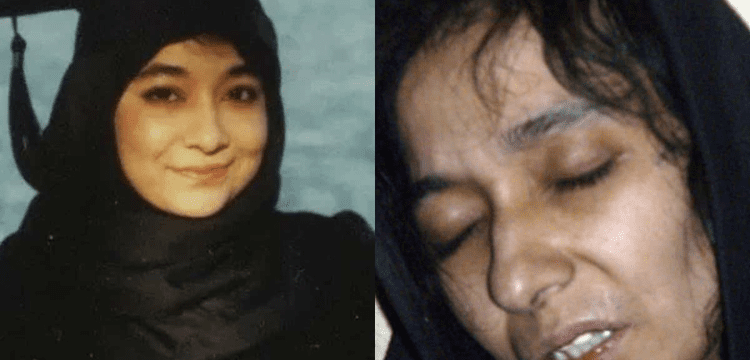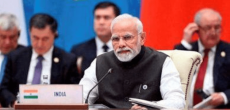[vc_row][vc_column][vc_column_text dp_text_size=”size-4″]Dr Aafia Siddiqui, a Pakistani neuroscientist imprisoned in the United States for more than a decade, met her younger sister Dr Fauzia Siddiqui after 20 years at the Federal Medical Centre in Carswell, Texas, Jamaat-e-Islami (JI) Senator Mushtaq Ahmad Khan announced on Wednesday.
The JI senator announced on Twitter that he and Clive Stafford-Smith — a prominent human rights activist who also assisted in the release of Abdul Rabbani and Ahmed Rabbani from the notorious Guantanamo Bay prison — will meet with Dr. Aafia on Thursday.
“Tomorrow, I will meet Dr. Aafia in prison, along with Dr. Fauzia and Clive Stafford-Smith,” Khan tweeted.
کل ڈاکٹرعافیہ سےمیری ڈاکٹرفوزیہ اورکلائیو اسٹافورڈاسمتھ سمیت جیل میں ملاقات ہوگی۔
لیکن آج ڈاکٹرفوزیہ کی ملاقات کاافسوسناک احوال سن لیجیے۔اگر چہ صورتحال تشویشناک ہے لیکن ملاقاتوں کابات چیت کاراستہ کھل گیا۔اب ضرورت اس بات کی ہےکہ عوام آوازاٹھائیں اورحکمرانوں کومجبورکرےکہ وہ فوری…— Senator Mushtaq Ahmad Khan | سینیٹر مشتاق احمد خان (@SenatorMushtaq) May 30, 2023
The senator’s tweet shed light on the incarcerated doctor’s plight; however, he stated that this has opened the door for more “discussions and meetings.”
He also urged people to speak out in support of Dr. Aafia’s release.
Senator Khan also recounted the events of the two-and-a-half-hour-long meeting, during which the imprisoned doctor described her dire circumstances and the tortures she was subjected to.
Also Read: US Senator expresses concerns over Human Rights situation in Pakistan
“This meeting took place 20 years later and lasted two and a half hours; Dr. Fauzia was not allowed to hug or shake hands with her sister.” Dr Fauzia was not permitted to show Dr Aafia photographs of her children. The meeting took place inside a jail cell, separated by a thick glass. Aafia was dressed in a white scarf and khaki jail uniform. Khan put pen to paper.
“In the first hour of the two-and-a-half-hour meeting, Dr. Aafia shared the details of the torture she was going through every day,” he continued. Dr. Aafia stated that she constantly misses her mother and children (she is unaware of their mother’s death). An attack in prison knocked out/lost Dr. Aafia’s front teeth. She also had hearing problems as a result of a head injury.”
Who is Dr Aafia Siddique?
Dr. Aafia Siddiqui, a US-educated Pakistani scientist, was sentenced to 86 years in prison in 2010 by a New York federal district court in September 2008 on charges of attempted murder and assault stemming from an incident during an interview with US authorities in Ghazni, Afghanistan — charges she denied.
She was the first woman to be suspected of having Al-Qaeda ties by the US, but she was never convicted.
Siddiqui moved to the United States when she was 18 years old to study at Boston’s prestigious MIT, where she later earned a PhD in neuroscience from Brandeis University.
However, following the 9/11 terror attacks in 2001, she was placed on the FBI’s radar for making donations to Islamic organisations and was linked to the purchase of $10,000 in night-vision goggles and warfare books.
The US suspected she joined Al-Qaeda in America before returning to Pakistan and marrying into the family of Khalid Sheikh Mohammed, the mastermind of the 9/11 attacks.
She and her three children went missing in Karachi around 2003.
Five years later, she was apprehended by local forces in the restive southeastern province of Ghazni in Pakistan’s war-torn neighbour Afghanistan.[/vc_column_text][/vc_column][/vc_row]










